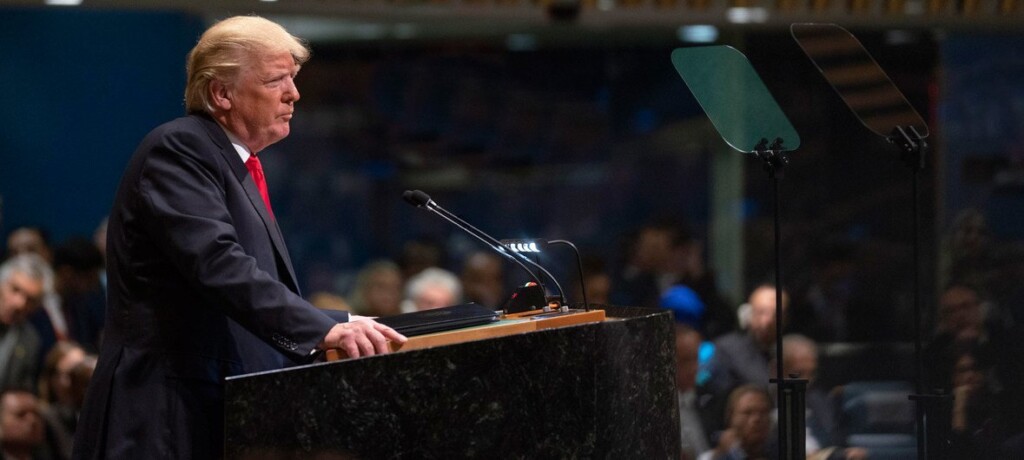Sudan named in new US travel ban signed by Trump

US President Donald Trump (File photo: UN)
Sudan has been added to a list of countries whose nationals are barred from entering the US under a new travel ban signed by President Donald Trump, yesterday. The measure, citing national security concerns, will come into effect on June 9.
Sudan joins 11 other countries facing full restrictions: Afghanistan, Myanmar, Chad, the Republic of the Congo, Equatorial Guinea, Eritrea, Haiti, Iran, Libya, Somalia, and Yemen. Nationals from seven additional countries will face partial limitations.
According to the recent proclamation by President Trump, the US government says Sudan lacks a reliable system for issuing and verifying identity documents or properly vetting travellers, and cites high visa overstay rates among Sudanese nationals as justification for the country’s inclusion in the new travel ban.
The announcement echoed Trump’s 2017 travel ban, widely known as the “Muslim ban”, which faced legal challenges but was ultimately upheld by the US Supreme Court. That policy initially targeted several Muslim-majority countries and was later expanded.
Officials said the list remains under review and could be updated, but until countries address identified shortcomings, the US will maintain certain conditional restrictions and limitations.
The decision comes amid rising tensions in US–Sudan relations.
Last month, the US State Department imposed sanctions on Sudan after determining that the Sudanese Armed Forces (SAF) violated the Chemical Weapons Convention, citing alleged chlorine gas attacks during the ongoing war.
In response, Sovereignty Council leader and SAF Commander-in-chief Lt Gen Abdelfattah El Burhan ordered the formation of a national investigative committee, comprising officials from the Ministries of Foreign Affairs and Defence, and the General Intelligence Service. The body has been instructed to deliver its findings “immediately”.
Sudan’s Foreign Ministry rejected the allegations as baseless and reaffirmed its commitment to international treaties, including the prohibition of chemical weapons.
Minister of Culture and Information Khaled Aleiser condemned the sanctions, describing them as “political blackmail” and “falsification of facts”.











 and then
and then